By: Maritza Plascencia, M.A., Licensed Marriage & Family Therapist
Was your partner physically, psychologically, emotionally, or sexually abused? Did your partner grow up in a dysfunctional home where s/he was neglected or witnessed domestic violence? No matter at what point in their life you partner may have been hurt, the reality is that if they have not been able to experience healing from their traumatic experiences, these are more likely than not coloring their experience in the relationship they have with you. The best thing we can do to support a partner is to be patient and educate ourselves in order to team up with them on their healing journey.
In my work with couples where one or both partners has experienced some form of abuse in their lifetime, I have witnessed that most healing happens when both partners are able to be open and vulnerable on a deep emotional level, as this creates a sense of deep connection between them. Once this is achieved, the very thing that used to get in the way of that intimate connection, becomes the force that drives the connection. One of the crucial things we must all understand when dealing with a partner's trauma is that a traumatic experience always changes and impacts the nervous system. This means that until that person is able to have enough corrective experiences where the sense of emotional safety is reestablished, then and only then will their brain change again, for the better. An intimate relationship with a partner is the kind of relationship that perhaps has the most potential to help any individual heal and simultaneously the kind of relationship with the highest potential for triggers. In this partnership, both individuals possess the same opportunity to create emotional safety for the other. Below are a few tips you may find helpful in doing so.
BE OPEN: We all know it takes time to feel comfortable in being open and deeply honest with a partner. Also, depending on our background and the environment we were brought up in our definition of "openness" may vary. For example, I may have been brought up in a home where it was okay to admit to really uncomfortable feelings or thoughts and this may be what I am working towards in recreating with my partner. My partner may have had the opposite experience, where being open in the same way was perhaps perceived as being disrespectful, inconsiderate and/or selfish. In this type of situation, we must lead by example and be patient as ultimately we must aim for creating a relationship where we are able to tolerate exposing our partner to the depth (darkness and light alike) that we carry within; if what we want is to convey emotional safety to our partner. If the opposite is true, if we are the ones who grew up with a negative connotation of “openness,” then we must know it is never too late to begin making changes that can make the relationship with our partner a safer and more deeply connected one.
A few simple steps to begin practicing this openness:
Share something personal with your partner (you can start with something easy)
Describe how you feel about it
Explore the ways in which this thing or situation impacts the way you see yourself and the messages it creates about who you are (share this with your partner as well, it’ll deepen the conversation)
Practice in-the-moment awareness and talk about what sharing this feels like
Be curious about how your partner feels or what s/he thinks about what you’ve just shared
Repeat (as you continue practicing, you may want to begin sharing things that are slightly more difficult for you and progressively work up to something you never thought would be possible to share)
Most people who have been hurt in severe and traumatic ways are able to recognize when another person is being painfully vulnerable with them, as they tend to be very familiar with their own pain and vulnerability. Which is why having a partner that is able to meet them at that level can be such a relief as they may finally and for the first time (in some cases) feel like there is someone who truly sees them. Feeling seen and understood by a partner can bring so much healing to any trauma survivor.
COMMUNICATE FROM WITHIN: In the United States, a country where culturally we place great value on the individual and "being yourself" or "being the best" we have been set up to think of ourselves and our needs first, sometimes without much regard for those we are in a relationship with. We become conditioned to communicate in reaction to what is outside of us, in order to guard what we carry within; therefore, making us be more connected and aware of all that is in our outer world and numb or disconnected to that which we carry within--a reason most relationships that fail, do so.
To communicate from within means:
To take time to analyze what we are feeling and thinking in any given situation, before reacting
To recognize the ways the situation at hand may be triggering us based on past experiences
To have the ability to separate what belongs to us from that which does not
To respond to the situation at hand rather than impulsively react
To communicate in an authentic and honest way, putting the intention forward of contributing in a productive manner rather than looking to compete in order to win
To approach with compassion and really strive to do so from a non-judgmental position
To focus on listening as much, if not more, than on being heard
RESPECT BOUNDARIES: When someone has experienced abuse or in other words been violated in any way by another human being, the sense of boundaries may be thrown off. Think about it this way, every time that anyone experiences someone making them feel disrespected or act in a way that has no regard for their needs or boundaries (emotional, physical or otherwise) the experience often gets internalized as a sense of helplessness and disempowerment. As time goes on, following the traumatic event, there may be other experiences that even if on their own are not acts of abuse or traumatic, they nonetheless reinforce the sense of helplessness and disempowerment, which for many trauma survivors may translate into ambivalence about setting boundaries. Any trauma survivor in a healthy and safe relationship is more likely to progress in their healing and regain a sense of control over themselves. A supportive partner makes a good ally for emotional and psychological healing.
Respecting your partner’s boundaries can be more simple than you think:
Validate your partner’s boundaries when you notice your partner setting them, even if you don’t agree with or understand those boundaries; it’s important to support your partner’s efforts in setting boundaries
Model good boundaries to your partner, speaking up for yourself and setting boundaries with your partner or with others for your partner to see can be a good way to help your partner have some sense of what good boundaries are
Encourage your partner to speak-up when they feel uncomfortable in a situation with you as this creates safe opportunities for your partner to practice and gain confidence in setting boundaries
Remind your partner about their boundaries if you notice they are forgetting they have the right to set them, especially when you notice they seem uncomfortable around any given situation; sometimes it can be as simple as reminding a partner to speak-up if they don’t agree in going to a specific restaurant for dinner
Celebrate your partner’s ability to use boundaries whenever you notice them doing so, this can further validate and help your partner in gaining confidence in trusting themselves to know when to set boundaries
HAVE REALISTIC EXPECTATIONS: Awareness, time, patience, effort and a good support system are what it takes for any of us to heal from past traumas. Over time you’ll begin to notice subtle changes in your partner; this can be weeks, months or years, everyone heals differently. For example, you may notice your partner no longer cries every time they talk about what happened. Perhaps they no longer get triggered like they used to or maybe they are able to work through their triggers in a shorter period of time. Some people may find it very helpful to seek professional support in dealing with this process of healing; if your partner is receiving individual counseling you may want to ask if they’d be comfortable in requesting to have you join one or two sessions in order for their therapist to help you understand how to better support your partner’s healing process (a lot of people don’t know this is something they can request). Be patient if your partner is not ready for taking this step, it may be that they are still not feeling fully emotionally safe with their therapist or feeling protective of their healing space; this is absolutely normal. If you feel that your partner’s trauma is causing conflict in your relationship couple’s counseling may be a great way to seek additional support for your relationship. If you do seek out couple’s counseling you want to make sure you seek out a professional who has training in trauma and specialized training in working with couples. It’s okay to straight up ask a therapist about their training, you want to make sure you are getting what you are looking for. If you find yourself feeling triggered and/or in need of additional support for yourself then pursuing your own individual counseling is definitely appropriate and normal.
Consider the following to form more realistic expectations in supporting your partner’s healing:
Understand healing is a process and not a task, therefore the length of the process varies from person to person. Don’t put a deadline on your partner’s healing!
Expect to be triggered; we all have triggers and even if you’ve never experienced abuse you may find yourself feeling triggered over other things you haven’t taken the time to address within yourself or maybe didn’t even know you needed to address.
Embrace the frustration…yes, I mean it! It can be frustrating to support a partner in their healing process and if we don’t allow ourselves to own our own frustration within this process we may end up building up resentment towards our partner. This is why you need your own support system.
Communicate with your partner (see above on communicating from within)! Don’t expect yourself to be okay by putting your partner’s needs ahead of yours, this will burn you out. While your partner does need you to be supportive, understand that healthy support is to be able to set boundaries and care for yourself as well. This way, not only are you making sure you won’t burn out on your partner, but you’ll also be normalizing and modeling the idea of taking a break from dealing with the difficult stuff in order to recharge.
PRACTICE SELF-CARE!!! I know, I know I’ve mentioned self-care in the last two tips, but it is so important you understand how much this will play a role in supporting your partner if you want the relationship to be healthy and more importantly to survive.






